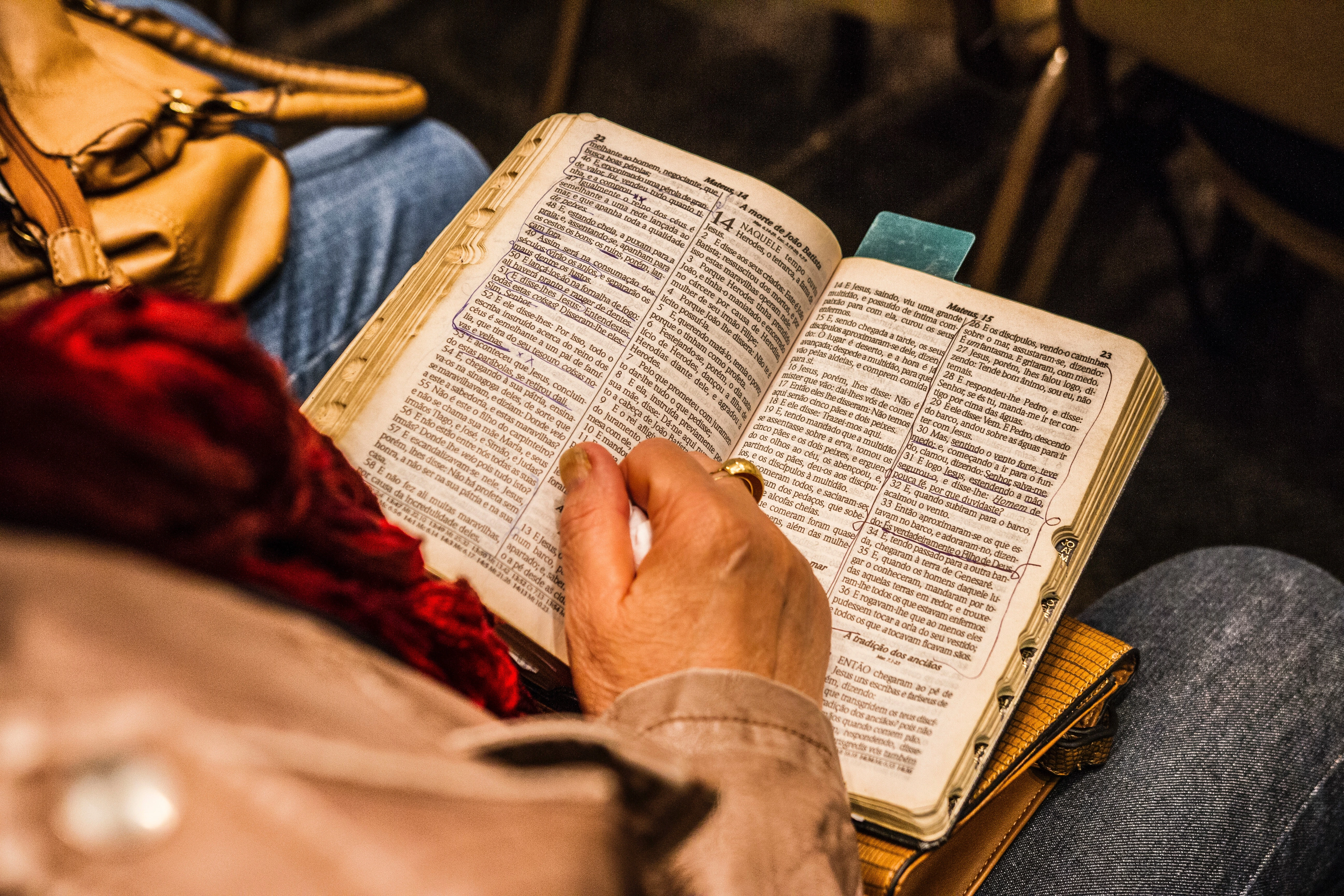Sample by My Essay Writer

Who I Am and Who I Am Becoming as a Christian Ethicist
Determining right from wrong is often a nearly impossible task, especially when it comes to moral issues. However, as a Christian Ethicist, I hope to continue learning and exploring God’s laws in order to help others lead a right and righteous life. Though deep exploration of moral theology can be a daunting task, I am no stranger to tackling hard issues. I have had a tumultuous and intense 55 years on this earth. Beginning with growing up in a time when there were not many opportunities for inner city black youth, I was raised among poverty, drugs and run-down buildings. My childhood was full of chaos. Proctor speaks of the need for stability in a child’s life: “A crucial characteristic of the incubator that fosters the affirmation of one’s personhood is that one looks around and sees in it order and meaning.” (Proctor, 65) The incubator I had been placed in did not positively affirm my personhood, it did not keep me warm and help me thrive. With this lack of order in my life, I continued to make poor choices and end up in bad situations.[“Write my essay for me?” Get help here.]

By the time I was eighteen, I had dropped out of high school, had a child and been involved with several emotionally and physically abusive men. Despite my parents’ warnings, I continued to make poor choices and ended up in marriages “locked in mutual destruction.” (Proctor, 88) Even in my own church, as a licentiate, I was being abused. I couldn’t understand how men who claimed to have been called by God to lead could abuse their power in that way. I felt I was being discriminated against for my gender and eventually decided to leave the African Methodist Episcopal Denomination completely. After some time, I decided to return to the denomination and found a new church. I needed to continue pursuing my calling and I wasn’t going to let a few bad men chase me away. I have faced a lot of things down in my life and today I am much more confident of my abilities in all areas of my life. I work to form strong relationships with my family, my friends and my God. [Need an essay writing service? Find help here.]
Social Psychologist Gordon Allport devoted most of his career to developing the proprium, a developmental theory detailing the seven aspects of the self. Allport’s proprium is a timeline for development of humans from childhood to adolescence. Reading Proctor and looking at the last two stages in the proprium was very eye-opening for me. I began to look at my own childhood and adolescence through the lens of Proctor’s and Allport’s views regarding human development and behavior. (Boeree)

As a child, my life was disorganized and I often felt unsafe. Allport’s “Rational Coping” stage of the proprium occurs generally between the ages of six and twelve. This is the stage in which children develop coping mechanisms and learn to approach problems and situations in life rationally. During those years in my life, I did not have a safe space or any role models showing me the right way to deal with life’s problems. It is clear to me now that my ability to rationally address situations was severely affected by my surroundings during this crucial stage of my development. The last stage of the proprium is “Propriate Striving.” It has only been in recent years, as I began to follow my calling to the ministry, that I have truly begun to take ownership of my life. For Allport, propriate striving happens sometime after a child turns twelve and it is the realization that their life belongs to them; that they must make plans for the future and set goals; that they are the captain of the ship. “One of the most frightening aspects of growing up is that slow but sure discovery that we have the freedom to make some serious choices in life on our own, and these choices do not go away.” (Proctor, 51)
I don’t believe I ever felt like I was the captain of my ship as an adolescent. Throughout most of my life, I have let the waves take me where they will and I have often blamed others for the bad things that have happened to me. As a child, I may have had limited choices and been treated poorly, but that does not mean I do not have the power to take control of my life now. Proctor believes strongly that people can, and should, change:
“Because our values, loyalties, and priorities are learned not inherited through our genes, and because they are buttresses and affirmed by habit and emotional attachment, they will not remain static.” (Proctor, 85)

I knew I had to change and stop blaming my difficult childhood and tumultuous personal relationships for the current problems in my life. When my younger sister died recently, suddenly, I had to take control of the situation. There were decisions that needed to be made and I had no choice but to face them and try to work through my grief. During this time, I turned to my unbending belief that God is all-knowing and all good.
My relationship with God and my faith in His plan have gotten me through so many rough times in my life. When I feel like burying my head in the sand, I remember that everything happens for a reason. Every single thing that happens to us – bad or good – is a part of God’s plan for our lives. Though I may not be able to understand why God would take my little sister from us, I do understand that He has his reasons. Proctor discusses the need to move through our lives with dignity and diligence, knowing that God is in control and that there is a purpose in all that we experience. You might hate your job, but maybe you are there because God is setting things up for you to cross paths with someone who is supposed to be in your life. I believe, like Proctor, that faith can give us the fortitude to get through tough situations with strength and grace.[Need an essay writing service? Find help here.]

Stone and Duke discuss two types of theology: embedded and reflective. Our embedded theology is the natural relationship we have with God and our faith. This type of theology is always with us, but often isn’t discussed or questioned for long periods of time. Reflective theology is when you begin to really delve into what you believe and why you believe it. Crises, like the death of my sister, often bring about theological reflection. (Stone & Duke, 16) It is during these times of reflection that we learn the most about ourselves and our faith. This is why it is so important that we remind ourselves to spend time in prayer; spent time earnestly thinking about what God intends for us. The more time I spend in theological reflection, the closer I become to God. By spending time reflecting or praying, I am strengthening my faith by building my personal relationship with God. As I become a Christian ethicist, I am increasing my knowledge of right and wrong and my trust in God’s righteousness and goodness.
Faith is impossible without a relationship with God. Now more than any other time in history, a personal relationship with God is essential. It is imperative that we seek him out and accept his leadership and guidance. I am building my life around the values of God and his Word. Along with reflection and prayer, my relationship with God is also strengthened through my relationship with His Son. Jesus was sent down to Earth to provide a clear, personal connection to God. For Proctor, the fully human Jesus and Jesus the divine son of God were one and the same. People need to have a relationship with God and are able to do so through Christ. Proctor considered Jesus’ teachings and examples to be the most important part of his ministry. By reading and following the example of Jesus Christ, we will be acting as God intended humans to act:
When we put to the test – to any test whatever – what he taught and how he lived it turns out that it is the only way for us to proceed in our personal lives or as a people, a society, or a nation without chaos and self-destruction … Indeed, Jesus is the way, the truth, and the life. (Proctor, 97)
Jesus was concerned with those in need, those who were marginalized and cast out by society. As a human, Jesus was an example of what God expects from all humans. By following the example of Jesus in my own life – and in my ministry – I will be following my calling from God. At the root of Jesus’s teachings and Christianity in general, is the theme of service. As a woman of God, I can use Jesus’ examples to become closer to God and to help others strengthen their relationships with Him as well. As a Christian ethicist, I will serve my God by ministering to my fellow Christians. [Click Essay Writer to order your essay]
As a child, I lacked the guidance and stability to learn right from wrong or get a clear view of morality. I continued to ignore the Christian values I knew to be correct throughout my adolescence and young adulthood. Today, I know that it is vitally important that children are brought up with God front and center in their lives, supported by family that provides discipline and moral teachings. I believe that young people today are given too much freedom to make choices that can negatively affect them for the rest of their lives. When I got pregnant at fifteen, I did not consider how it would affect my long-term future. Proctor discusses the importance of providing young people with guidance and support (Proctor, 54), protecting them from bad choices and morally corrupt actions.
As a minister and Christian ethicist, I believe I can help to guide the children I work with as well as other children that come into my life. By studying God’s Word carefully and using it to determine and establish morally correct standards, I intend to be the guide that I did not have as a child. I will help to provide direction and guidance that children and adolescents – and their parents, often – need in order to learn how to live happy, Christ-like lives. I am learning that I can be a catalyst for change in others’ lives as well as my own. My past has made me strong and my God has made me even stronger. I know that my calling is to be a minister of God and I believe there is nothing more important than a personal relationship with Him. I plan to use my experiences and knowledge to help others form a personal relationship with God that can help them live full, truly Christian lives.
References
Boeree, G.C. (1998) Gordon Allport 1897-1967. Personality Theories. Retrieved from:
Proctor, Samuel D. My Moral Odyssey. Valley Forge, PA: Judson Press, 1989.
Paris, Peter J. Virtues and Values: The African and African American Experience. Minneapolis: Fortress Press, 1998.
Stone, Howard W. and Duke, James O. How to Think Theologically; Second Edition. Minneapolis: Augsburg Fortress, 2006.






